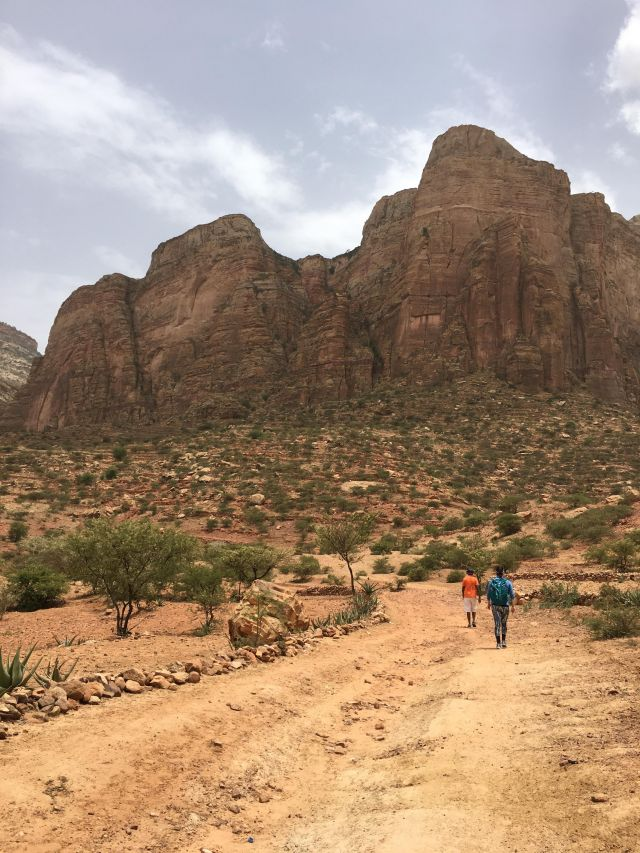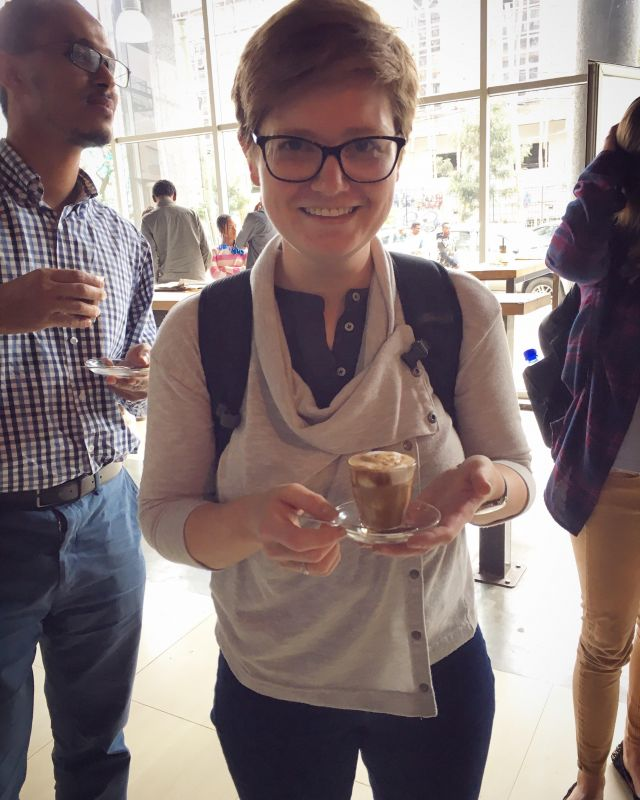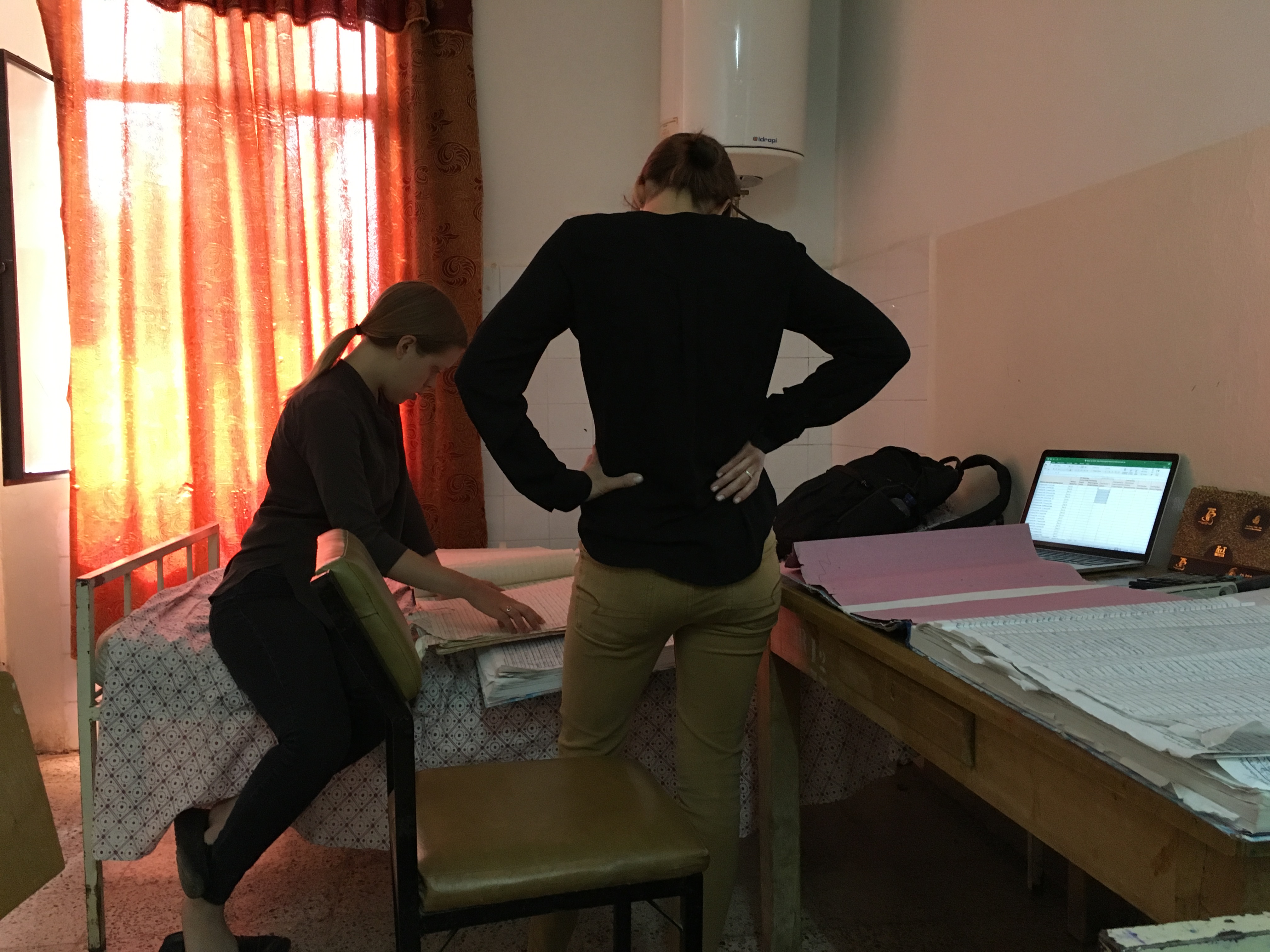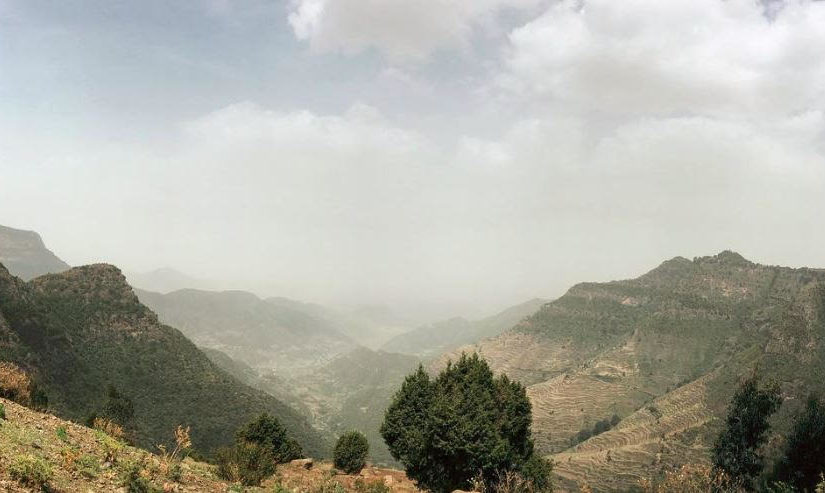I have a friend who likes to remind me of her favorite mantra: “We are human beings, Sarah, not human doings.” — “Not me!” I usually retort, only half in jest. “I’m definitely a human, doing.”
In June, I boarded a plane from Boston Logan airport to Addis Ababa, Ethiopia for the first leg of international travel with my Keough School i-Lab project. The Program in Global Surgery and Social Change is a research group at Harvard Medical School that is working to improve surgical outcomes in low- and middle-income countries through evidence-based national health policy and advocacy. In Ethiopia, PGSSC is a part of the implementation partnership known as Safe Surgery 2020, funded by the GE Foundation, and working in collaboration with the government of Ethiopia. I traveled to Ethiopia to observe and learn about the partners working there under the umbrella of SS2020, as well as the Ethiopian government’s national plan for surgery, called Saving Lives Through Surgery, or SaLTS.

When I left for my work this summer, I was admittedly a little disappointed not to be “doing” anything. Our project plan could essentially be boiled down to “listen and learn,” while many other groups had detailed execution plans from their partner organizations. My own biases for “doing” in the front of my mind, I decided to embrace the opportunity to simply be present, observing and reflecting, and allowing those around me to drive our conversations and ultimately the direction of my final product—teaching cases designed to “tell the story” of surgical policy and implementation initiatives in low-resource countries.
In truth, our group has been incredibly fortunate to be supported in such a vaguely defined project. Having previously worked as a grant manager, I can tell you I do not know many funders (even in higher-education) who would support such an exploratory mission—an opportunity I wanted to fully embrace as I entered interviews with my teammate in Addis Ababa, Ethiopia.

A few key themes emerged from my listening tour, one of which I think is particularly relevant to the i-Lab and to our summer global partner experiences: the challenge (and reward!) of partnerships. It is not a secret that true partnerships are not easy to form or maintain, but when properly nurtured, they can bring about lasting relationships, changes, and outcomes that would never have been possible otherwise. This has been true for the SS2020 initiative in Ethiopia, a collaboration across not only organizations, but industries, nations, and cultures. Despite many initial challenges, the early participants from SS2020 in Ethiopia all shared some version of essentially the same story with me: once they took time to get to know their collaborating partners, via improved communication and personal relationships, the professional relationships became stronger, and their work was both more effective and more rewarding.
With my tendency to consider myself a “human, doing” I know how easy it is to get focused on the task at-hand, rather than the people we are serving or with whom we are working. This was also true in some ways in SS2020, as the Ministry of Health asked SS2020 to provide their very promising leadership training to all surgical hospitals in the country. “Safe Surgery is not about the leadership training [alone]—it is about the action plan, and mentorship, and all of the other resources that fill the gaps,” said one informant, referring to the follow-up task each team is assigned. With the support of mentors, teams collaboratively identify a barrier to surgery in their own hospital, and create a step-by-step action plan to address the need. The surgical teams who have completed this exercise have succeeded at a remarkable rate in addressing their barriers, but—perhaps even more importantly—they have improved their communication and their relationships with one another.
It didn’t used to be this way. Before, surgical teams didn’t communicate outside of their limited, individual roles in the operating room, we were told, which led to a lack of coordination that affected patient care. Now, the entire team knows the responsibilities of each of its members, enabling them to work more effectively in both planning for and executing surgeries. This further improves outcomes for patients, creating lasting changes in the operating room, hospital, and health-system culture that will survive long beyond the life of any purchased generator or newly acquired technical skill.
Unfortunately, partnerships alone cannot fix under-resourced health systems, deteriorated infrastructures, lack of cash flow, and the many other barriers that prevent the average person from receiving safe and affordable surgery in every country. However, with partnerships, the load that must be carried clearly gets a little lighter, and the path a little more clearly lit.
As my favorite saying (about doing) suggests: “If you want to go fast, go alone; if you want to go far, go together.”
We may not be going very fast with our work this summer, but the value of sitting still and listening—and bringing others along with us through our teaching cases and other forms of storytelling—cannot be underestimated. In fact, with these resources and this newly-formed partnership, it is my hope that Harvard’s PGSSC and the Keough School will ultimately go much further than I can currently imagine.



One thought on “On Being (and Doing) in Partnerships”
Comments are closed.